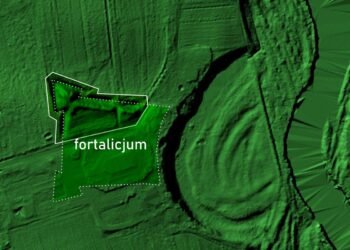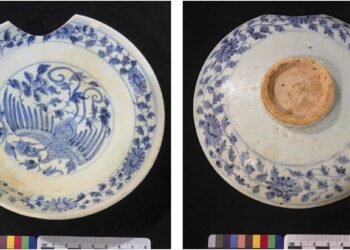Archaeologists at the University of Mississippi, in collaboration with medical experts, have unearthed a rare medical anomaly in the burial site of the Mississippi State Lunatic Asylum. The discovery, detailed in the International Journal of Osteoarchaeology, pertains to the preserved gallbladder of a woman buried at the asylum cemetery a century ago.

The skeletal remains revealed a calcified gallbladder, a condition termed “porcelain gallbladder,” never before encountered in archaeological excavations. Measuring 46 millimeters in length, 28.5 millimeters in width, and weighing 16.1 grams, this petrified organ is a result of cholecystitis, a rare disease characterized by calcium accumulation in the gallbladder’s muscular walls.
The object’s identification relied on X-rays and micro-CT scans conducted at the University of Mississippi Medical Center, revealing a single large gallstone within the calcified rim.
The study raises awareness among anthropologists of this scarcely recognized medical condition and advocates for the utilization of CT scanning to detect calcified gallbladders in archaeological remains. Such efforts could contribute to a better understanding of gallbladder diseases’ prevalence in past populations.
Moreover, the researchers observed a higher-than-expected occurrence of gallstones among asylum burials, suggesting a potential link to the healthcare practices of the time.
According to the researchers, while there is no established association between mental illness and gallbladder diseases, further research is warranted to explore the medical treatments administered in psychiatric institutions during the early 20th century.
Furthermore, the researchers emphasized the importance of contextualizing medical findings within the broader socio-historical landscape. While the asylum’s closure predates the antibiotic era, the treatment methodologies employed during its operation warrant closer examination.
Speculations suggest that treatments such as opium, administered for pain relief and sedation, could have exacerbated certain conditions, including those affecting the digestive system.






















